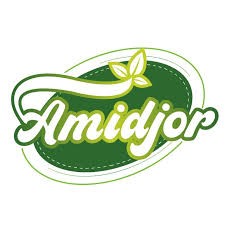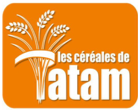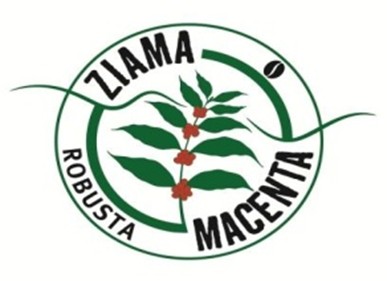Amidjor is a company specialized in agri-food production, processing, and training.

Halatou holds a Master’s in Finance and Management from the Rabat International School of Management (École Supérieure Internationale de Gestion in Morocco). She has over 10 years’ professional experience in the agri-food industry and has been co-CEO of Les Céréales de Tatam (LCT) since 2010.
Halatou has also received the 2017 Best Entrepreneur Award by B & T Communication – Evènementiel.
While continuing to take part to several debates, fairs and forums in Africa and Europe, Halatou attended more than 100 training workshops between 2010 and 2018.

Type: Limited Liability Company
Year of Founding: 1992
Number of Employees: 35, of which 22 are women
CEO: Halatou Dem
Business model
LCT commits to achieving innovation through nutrition and promoting women’s employment and privileges women in the recruitment process.
In 2018, the original family business DANAYA CEREALES SARL, created in 1992 by Halatou’s mother, Aissata Thiam DEM, whose nickname is “Tatam”, was renamed Les Céréales de Tatam.
Initially, the company processed grains produced in Mali (fonio, mil, rice, sorghum and maize) in an artisanal way. Halatou joined the company in 2010 and undertook to modernise the company, in order to maintain the high quality of its produce. The overall goal was to industrialise all the processing steps, mainly by acquiring the relevant machinery.
This industrialisation had two objectives: to reduce the risks related to artisanal processing and enhance the production volumes; and to contribute to supporting the underdeveloped processing sector in Mali. The sector requires financial and mechanical inputs that are not easily accessible in the country.
By processing grains, LCT provides added value to traditionally grown grains in Mali and enhances their nutritional value. The company has two processing units, one located in an industrial zone in Dialakorobougou and one at Baco Djicoroni Golf.
LCT mainly produces for the domestic and sub-regional markets, as the processed grains are typical grains of the region. LCT has achieved a leading position by offering high-quality products. The company received the Malian quality award in 2008, 2010, 2014 and 2017.
Strong relationships with smallholders
LCT works closely with a producers’ cooperative with more than 1000 members located in a wide geographical area in Mali, all along the value chain. For over 20 years, LCT has contracted its supply in order to achieve a “win-win” situation. Working with contracted suppliers ensures LCT’s supply of good quality grains. On the suppliers’ side, working under contract enables them to be supported and accompanied in their business by LCT. It also ensures stable financial support which enables their children to go to school.
Products covered and markets
LCT produces the following processed grain products:
LCT sells 90% of its products on the Malian and sub-regional markets, to supermarkets, shops, retailers and (semi-) wholesalers. It also exports to West Africa, Gabon and Congo, and internationally to the USA and France.
LCT is HACCP certified. LCT’s products currently do not have any certification, but the company has initiated the process to become ISO-22000 certified. Other certifications (organic, Fairtrade) are planned but first require an effective traceability system to be put in place.
Innovations: Milestones and expansion plans
In order to evolve from an artisanal business to a modern one, LCT initiated a process of modernisation from 2010 onwards. It has benefited from technical support from WFP and from UN Women, as well as technical and financial support from Lux Development within its project (MLI 21) to develop its (women’s) entrepreneurship and grain processing activities. LCT also benefited from equipment supplied by the French Development Agency and the Bill & Melinda Gates Foundation within the ALTAAQ project (Achats Locaux, Transformation Alimentaire et Amélioration de la Qualité; Local Purchasing, Food Processing and Quality Improvement). These partnerships also enabled LCT to receive loans from Malian banks and thus to invest in mechanisation. The International Bank for Trade and Industry in Mali granted LTC its first loan of 75 million CFA francs (€114,346) to finish the construction of the second processing facility.
LCT is still working on how to achieve better quality of supplied grains and higher added value of its processed products. To this end, the company has created a traceability system, and supports the producers’ cooperative supplying the grains to implement the system. This is an essential step towards having certified value chains and products.
Access to finance and mechanisation remain obstacles that LCT tries to overcome in the artisanal industrial sector in Mali.
Lastly, LCT faces difficulties in hiring adequate staff to work in the agri-food processing sector. As this sector requires specific skills, LCT is aware of the need to finance the training and education of key staff.
Success factors and lessons learned
LCT has succeeded in changing perceptions of the processing industry in Mali. At the time of its creation, processing was not considered as a professional activity, and banks would not offer financial support to processing businesses. Since then, LCT has proved that processing is a profitable activity with potential.
Moreover, LCT actively contributes to formalising women’s activities in the processing sector.
Additional Resources
Join our Forum to discuss and explore how to encourage innovations across agricultural value chains to transform food systems in African, Caribbean and Pacific countries and beyond, promote sustainable agriculture & leverage investments. Share insights, ask questions, and collaborate on innovative solutions for a greener future.
Recent Business Profiles

Amidjor is a company specialized in agri-food production, processing, and training.

ADECAM is a community-driven organisation in Guinea dedicated to protecting, promoting, and developing the Ziama-Macenta Geographical Indication coffee, while supporting smallholder producers...

Tac Maz Sustainable Ventures is a climate-smart social enterprise in Malawi supporting smallholder farmers through sustainable poultry and horticulture production.

Bono Salus is a Zimbabwean woman-led agribusiness specializing in urban hydroponic farming of microgreens.

The Nut Place is a Nigerian food innovation company that processes locally grown edible nuts into gluten-free, nutrient-dense products to improve nutrition, reduce post-harvest losses, and promote...